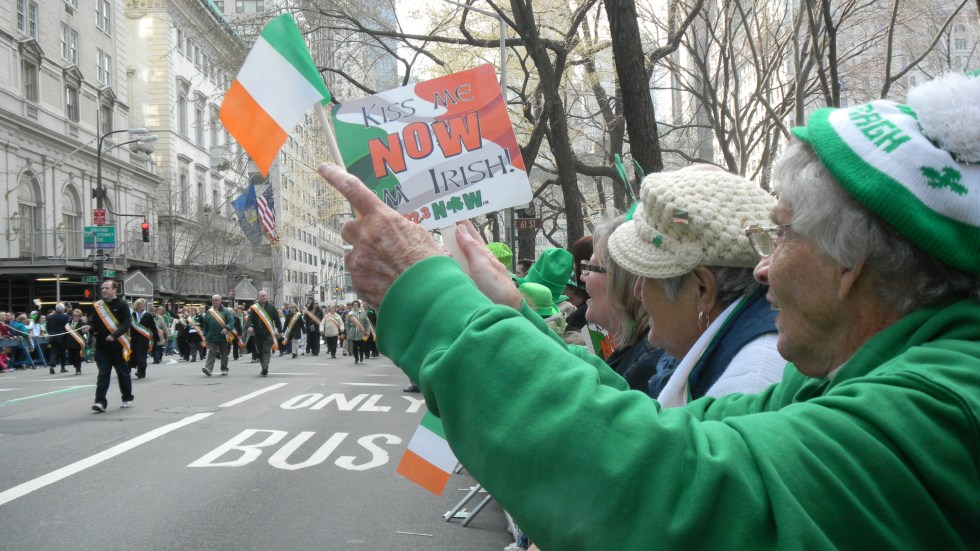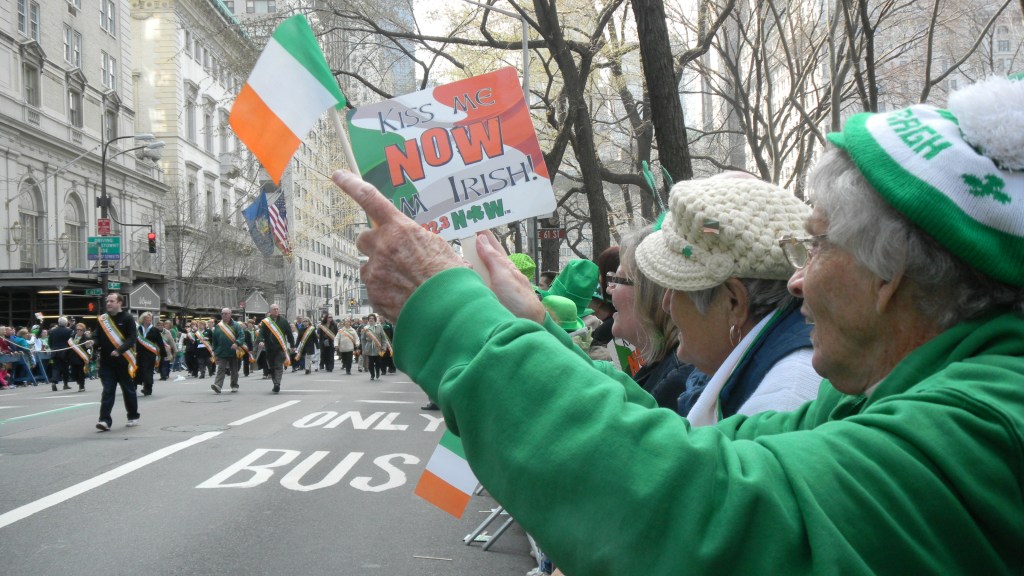
St. Patrick’s Day is one of my favorite holidays. Friends and descends of Éire around the world celebrate Irish culture and the legacy of one of the greatest Catholic saints in history. Perhaps more than any other holiday, St. Patrick’s Day also celebrates the legacy of immigration to the United States and the rise of an oppressed and marginalized people to the mainstream political and economic power. At its best and noblest, this is a story of perseverance, strength, and generosity. One look at the St. Patrick’s Day Parade in New York City and the dozens of participating institutions—from universities to police departments—and the legacy of Irish Catholics to US culture becomes very clear. 
The Sin of Irish Racism
But the history of Irish Americans in the United States also has a negative side that must also be told on St. Patrick’s Day. While we have risen to prominence in social, economic, and political life in the United States, we have accepted and even contributed to the oppression of others, and in particular, people of color. Many Irish Catholics have been and continue to be instigators in egregious acts of racial injustice including the ownership of slaves, police brutality, segregation in Catholic parishes and social institutions, and disgusting behavior in relation to school bussing. But the sins of Irish Americans extends far beyond these acts of commission, acts which have largely become as the US bishops describe as “bad form.”
Sin in the Catholic tradition is much more than a direct action. This can be seen in the penitential rite, where believers not only seek God’s forgiveness for what we have done, but also for what we have failed to do. In other words, we equally sin when we fail to respond when we are indifferent or dismissive to the plight of others – when the suffering of others as Pope Francis writes “fail to move us” (EG, 54).
The silence of Irish Catholics in the face of American racism is deafening. These sinful acts of omission and indifference are sustained by a false narrative that is often told on this feast day. It’s a narrative that I’ve heard many times. Similar narratives exist among other communities in the United States, what Shawn Copeland describes as the immigrant thesis. This thesis generally goes something like this:
- My grandparents or great-grandparents came to the United States as poor Irish immigrants during or after the Civil War.
- They did not settle in the “south” where all those “racist things” were happening.
- They themselves faced anti-Irish and anti-Catholic discrimination.
- But they worked hard and got out of poverty on their own.
- Therefore, I am exempt from any responsibility in racial injustice.
A classic example of this narrative can be seen in the interview of Bill O’Reilly on the Daily Show recently . O’Reilly consistently uses this type of story to deny the existence of white privilege.
While it sounds nice, this is a false narrative (if not a delusion) as it ignores the collective role of the Catholic Church in the systems of slavery (some nuns even owned slaves); the continued presence of racism today; and the benefits enjoyed by even poor whites in a culture that condemns blackness. One need only look at the continued discrimination in housing and school systems to see the legacy of white privilege.
The silence and indifference of Irish-Americans to the sufferings of African-Americans is tragic, given the fact that St. Patrick was a former slave and that Irish Catholics themselves were victims of xenophobic oppression at the hands of the institutionalized racism of the British Empire.
Thankfully, there is another narrative that can be told today-this is one that one of my grandfather’s told to me. This story goes like this:
- My grandparents or great-grandparents came to the United States as poor Irish immigrants during or after the Civil War.
- My family was aided by strong community ties and powerful institutions including a large Irish subculture with Catholic schools, colleges, hospitals, and job networks.
- While they faced discrimination it was nothing like the horror of slavery, the evils of lynching, and institutionalized segregation.
- Willingly or unwillingly my family also benefited in subtle and no so subtle ways from having “white” skin color, what has been known as white privilege.(Irish Americans were not separated in restrooms, not forced out of certain neighborhood and school districts by housing discrimination, not profiled by police, not prevented by voting, etc)
- Therefore, I have a responsibility to aid those who are oppressed and marginalized today. The Hebrew Bible offers strong rationale for this as it repeatedly urges: “You shall not oppress or afflict a resident alien, for you were once aliens residing in the land of Egypt.” (Ex. 22:20). If our ancestors faced discrimination as Irish Americans, we have a responsibility to reinstate others.
Pope Francis
Since taking office, Pope Francis has frequently spoken about the obligation for Catholics to reach out to those who have been marginalized and the evil of being indifferent to the suffering and discrimination of others. Recently in his homily to new cardinals, the pope drove this point home. Reflecting on Jesus’s healing of a leper in the Gospel of Mark (MK 1:40-41), the pope calls the cardinals, and by extension all Catholics, to follow the model of Jesus to go out to those who suffer from social discrimination and prejudice. Jesus, he insists, is a man of “concrete action” who “reinstates the marginalized!” Francis concludes his powerful homily this way:
I urge you to serve Jesus crucified in every person who is emarginated, for whatever reason; to see the Lord in every excluded person…to see the Lord who is imprisoned, sick, unemployed, persecuted; to see the Lord in the leper – whether in body or soul – who encounters discrimination! We will not find the Lord unless we truly accept the marginalized!…Truly, dear brothers, the Gospel of the marginalized is where our credibility is at stake, is discovered and is revealed!
The pope’s challenge here is very radical and it should make us uncomfortable. As we celebrate St. Patrick’s Day in this season of Lent, let us prayerfully examine our own acts of commission and omission in relation to racial injustice. All of us, even if we don’t want to be, are bound into these systems and structures of sin. All of us are responsible. The commemoration of St. Patrick and his people ought to inspire us to work for all people who have been and continue to be oppressed by marginalization and discrimination.
See also:
- St. Patrick’s Day…Reconsidered and Reclaimed (March 19, 2012)
- Patrick: A Prophet for Global Justice (March 16, 2014)

This steel statue of St Patrick has just been erected on the Belfast Road. © Copyright Albert Bridge and licensed for reuse under this Creative Commons Licence (see below)

You must be logged in to post a comment.